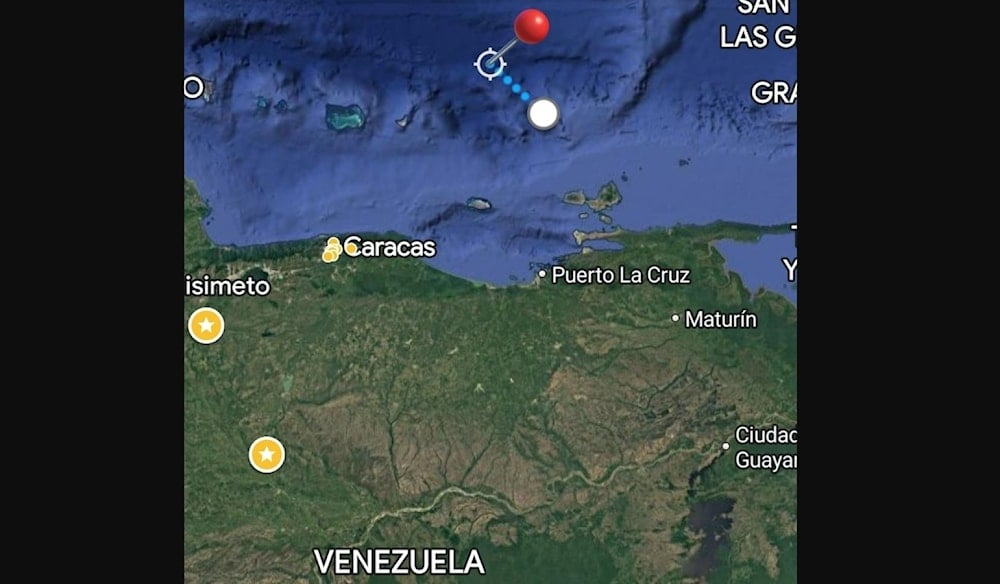Venezuela condemns US destroyer's aggression on Caribbean fishermen
Venezuela condemned the US Navy's boarding of a tuna boat in its waters as a hostile provocation linked to Washington’s broader regime-change agenda in the Caribbean.
-

The dot on the map shows the area where the US destroyer USS Jason Dunham (DDG 109) was operating yesterday, Friday the 12th (@Arr3ch0)
The Bolivarian Republic of Venezuela denounced what it described as an illegal and hostile provocation by the United States, after a US Navy destroyer forcibly boarded a Venezuelan fishing vessel operating in the nation's territorial waters.
According to an official statement, the USS Jason Dunham (DDG-109), armed with cruise missiles and carrying highly trained Marines, intercepted the tuna boat Carmen Rosa on Friday, 48 nautical miles northeast of La Blanquilla Island within Venezuela's Exclusive Economic Zone. Eighteen armed personnel reportedly occupied the vessel for eight hours, cutting communications and obstructing the work of nine fishermen engaged in authorized tuna fishing.
The Bolivarian National Armed Forces said they tracked the incident minute by minute with naval, aerial, and surveillance assets, ensuring the crew's safety and demonstrating Venezuela's capacity to defend its sovereignty.
Officials condemned Washington's "grotesque and disproportionate" use of military force against civilians, framing it as a deliberate attempt to provoke conflict in the Caribbean and to revive a failed policy of regime change long rejected by the Venezuelan people.
🚨 Comunicado oficial 🚨
— odailfred paraco (@odailfredParaco) September 13, 2025
Venezuela denuncia un acto de hostilidad: un buque de guerra de EE. UU., el USS “Jason Dunham”, asaltó un barco de pescadores venezolanos, el “Carmen Rosa”, en su propia Zona Económica Exclusiva, cerca de la isla La Blanquilla.
La tripulación de nueve… pic.twitter.com/TqgwLWMv0n
The incident comes as the United States has deployed additional destroyers and warplanes to the Caribbean under the pretext of counter-narcotics operations. Analysts in Caracas argue that such assets, guided-missile warships and advanced fighter jets, far exceed the requirements of anti-smuggling patrols, confirming that the real aim is to intimidate Venezuela and destabilize its government through gunboat diplomacy.
President Nicolás Maduro has already warned that Washington’s moves echo past imperial adventures, where exaggerated “security threats” were manufactured to justify intervention.
Adding to these concerns, earlier this month US forces struck and destroyed a vessel Washington claimed was tied to drug cartels, marking the first time American forces had used direct military firepower against such a target in the Caribbean. Critics called the action highly controversial, arguing that employing missile-equipped warships against small boats sets a dangerous precedent, blurring the line between counter-narcotics policing and outright acts of war.
For Caracas, the escalation underscores that so-called anti-drug operations are being used as a cover to normalize military aggression in the region.
Caracas urged the American people to recognize the danger of these reckless maneuvers and to reject policies that endanger peace while sacrificing US soldiers for the ambitions of elites. Venezuela reaffirmed its commitment to peace but stressed it will continue to defend its sovereignty and maritime security against all provocations.
Read more: Venezuela to mobilize 284 battlefronts as US escalates tensions

 3 Min Read
3 Min Read










